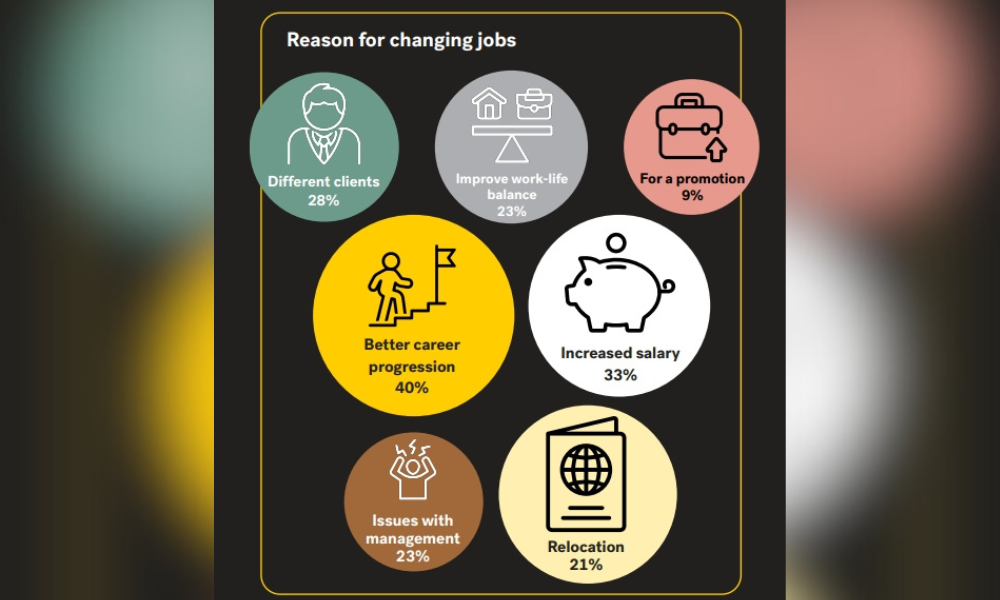
Increased salary also deciding factor in accepting job offers, report finds

Nearly a third of PR talent in Australia have changed jobs in the last 12 months, driven strongly by the desire for better career progression, according to a new report.
The 2024 PR Salary Guide revealed that 31% of PR talent had changed jobs over the past year.
The top reason for this move is for better career progression (40%), according to the report. This is followed by increased salary (33%).
"What's interesting about these results is that in our day-to-day conversations with job seekers, salary rarely makes it into the top three reasons for changing jobs," the report read.
"However, it is always the final factor in deciding if they will accept a job offer from a new employer."

Source: 2024 PR Salary Guide - Australia
The desire for increased salary follows a period of "stabilisation of salaries" in 2023, which came after a period of continued growth, according to the report.
"This stabilisation doesn't seem to have continued throughout 2024," the report read. "In our recruitment process, we are seeing an increase of talent asking for superannuation on top of last year's salary bands."
To retain employees, the report urged employers to ensure that they have robust training and development programmes in place. They also need to have a culture that "focuses on excellence" and a leadership team that is clear but kind in their expectations.
For those seeking to attract talent, the report suggested being "innovative" with their employer brand. They also need to get their culture and benefits promoted across socials and have their presence felt in the industry media.
Meanwhile, the report also uncovered that 88% of PR talent want to work in the office three days or less a week.
This includes 49% who want to come onsite three days a week, 36% who want to come twice a week, and three per cent who want to come once a week to the office.
The report attributed the desire for hybrid work to Gen Zs.
"They entered the workforce for the first time, having no reference point as to what it was like just a few years earlier. They want to work for outcomes-focused leaders and become frustrated at what they deem as old-school presenteeism culture," the report read.
Accommodating the needs of Gen Zs becomes even more crucial as the report pointed out that they are expected to overtake Baby Boomers in the workforce this year.
"As they move up the career ladder, ensuring you appeal to this group will become critical to talent attraction," it read.